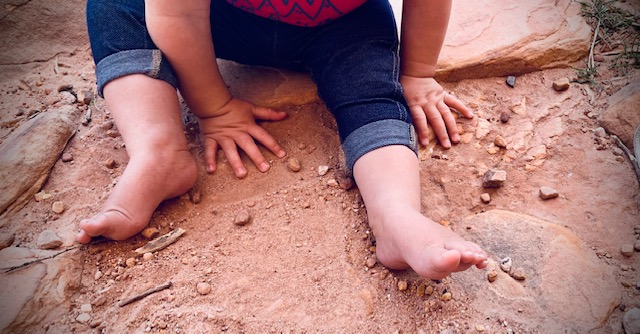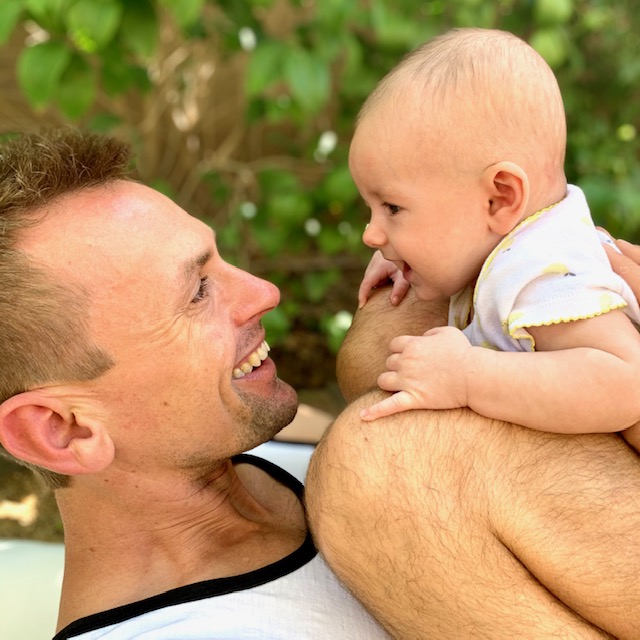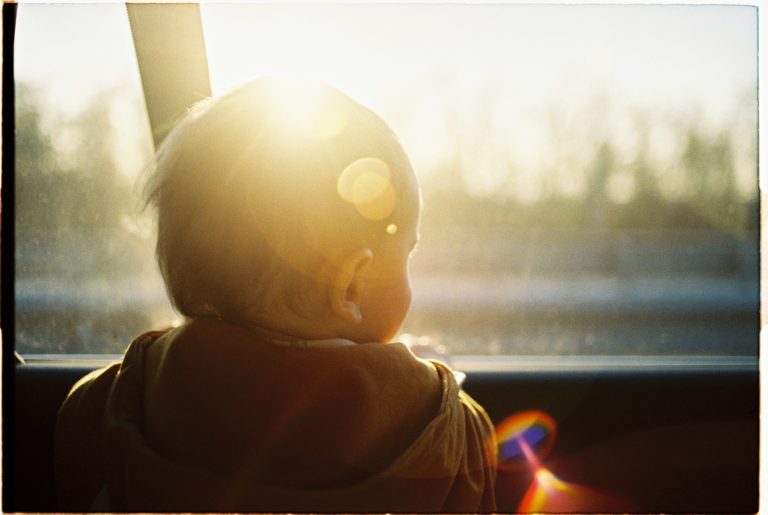Why You Should Raise Your Kid Like Mowgli— Parenting Wisdom from The Jungle Book
If you were to ask parents from all over the world what their idea of raising a healthy, balanced child would be, you would get many different answers. Our personal culture or traditions definitely have an influence on how we raise our kids and can affect our parental goals.
For instance, according to the book Our Babies, Ourselves by Meredith F. Small, the parental goals for a traditional hunter-gatherer tribe in Africa are social integration, mobility, and sharing, whereas Americans tend to put a high value on kids being independent and self-reliant.
This made me think. What is MY idea of a healthy, balanced child? What are MY parental goals?
Then I realized— if I had to define my parental goals in five words it would be: Mowgli from the Jungle Book.
Huh? Why would I want to raise my kid like a wolf-raised orphan?
Hear me out.
First of all, Mowgli captures the spirit of childhood that resonates with all children no matter where they live: being wild and free and deeply connected with nature.
I also want my child to develop the qualities that a tree swinging, earth-connected man cub would have. Mowgli is
- independent
- self-reliant
- brave
- curious
- incredibly athletic
- highly creative
- playful
- lover of animals
- and I’m sure his gut flora is off the charts.
Before you think I’m delusional, yes I realize he is a fictional character, lol, but…
I believe nurturing the “Mowgli spirit” in our children is the key to raising a healthy, balanced kid.
Besides, who didn’t want to be like Mowgli when they were a kid?? I mean, he lived in the jungle, talked to animals, swung from trees, and had a bear as a best friend. What’s not to love?
So how do we raise a kid like Mowgli while living in an urban jungle?
You can’t exactly send your kids off to jungle boarding school to be raised by wolves, but with a few modifications, you can raise your kid with the same ideals and allow them to reap the benefits of being raised like Mowgli— without the threat of a man-eating tiger hunting you down.
Here it is!
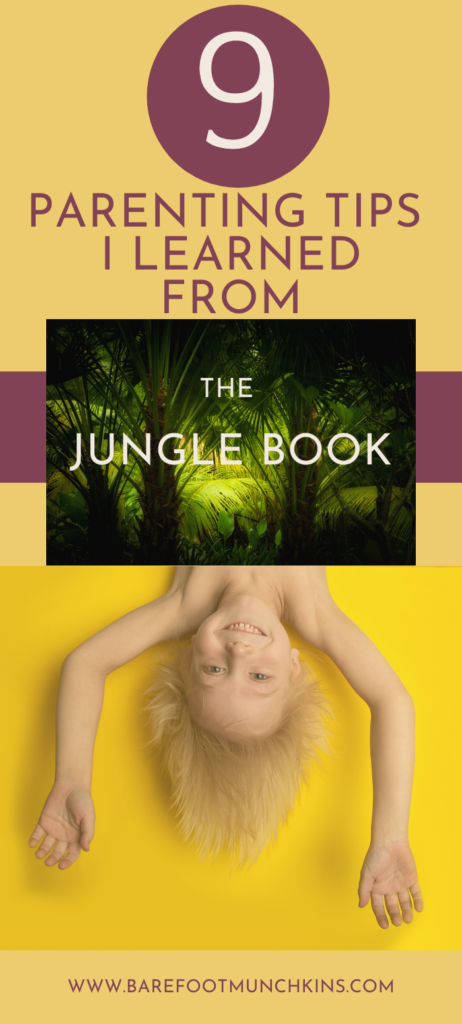
(This post may contain affiliate links. You can read our full disclosure policy here.)
How to raise your kid like Mowgli
1. Be one with nature
Mowgli was not a visitor in the jungle— he was one with the jungle. This is not much different than the relationship kids have with nature. Kids and nature are like soul mates. Whether they get lots of time in nature or just a little, it is an effortless relationship. They are meant to be.
The more disconnected our kids are from nature, the more of a strain there is on the relationship. Like a good friend that’s been gone so long they don’t feel comfortable opening your fridge anymore when they come over, our kids can start feeling like a visitor in nature instead of a part of it. Kids that feel like they are one with nature are more likely to care for it and grow up wanting to protect it.
When I would go hiking or playing outside as a teenager, my friends and I would try to find our “Mowgli spot.” A Mowgli spot is a naturally cozy spot in nature, (like an indented boulder or an extra wide tree branch) where you can read, hang out, or just relax.
Do what you can to nurture their love for nature. Let them spend enough time in it so they feel comfortable in it. Allow them to take ownership of it and be the king of their jungle.
2. Loosen up their schedule
Mowgli did not have a strict agenda. He had no after-school sports, no lessons, no math tutoring (that is until he went to the man village.) But until then, he explored, he discovered, he played.
Encourage your child to play outside and allow time every day for unstructured playtime. This allows kids to use their creativity, develop problem-solving skills, and challenges their imagination.
Once kids start school, they get plenty of structured time and academics and probably even after-school obligations.
Just let them play.
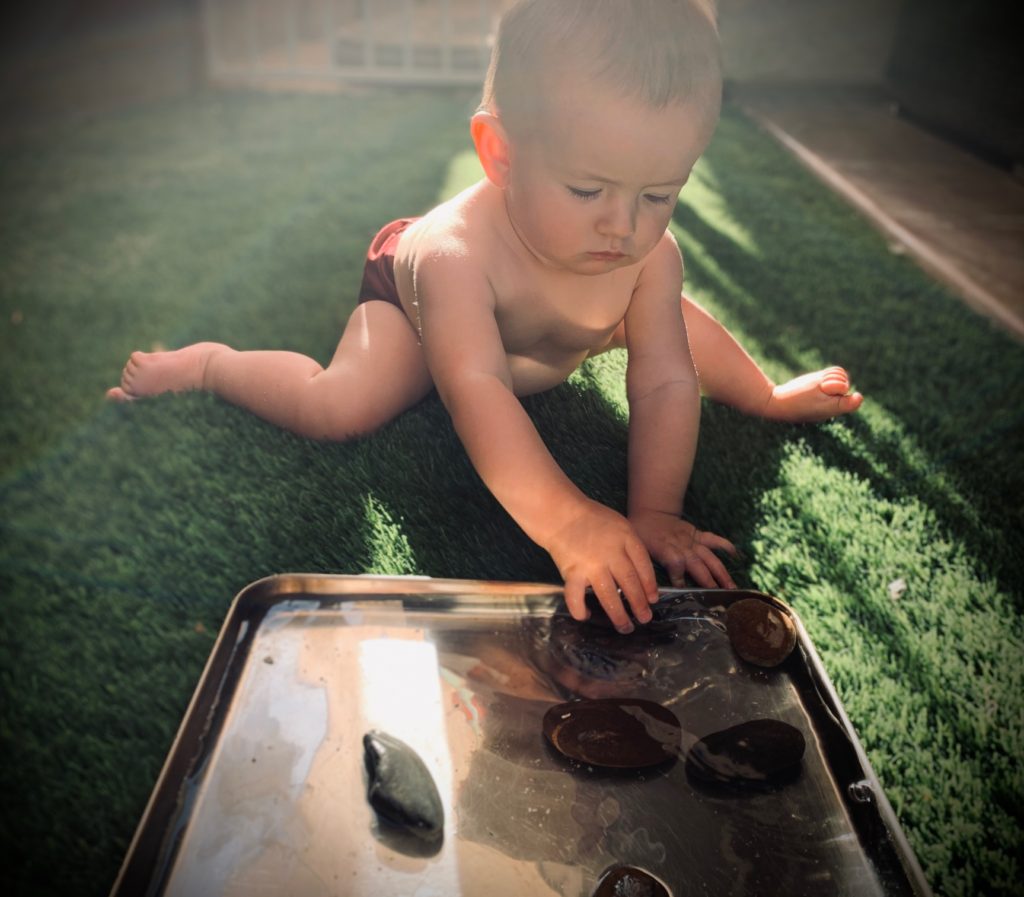
3. Embrace the dirt
If you are a clean freak, this one can be tough. But letting kids get dirty is really good for them! It exposes them to good bacteria, engages their senses, and helps them have a richer connection with the world around them.
No doubt about it, Mowgli embraced the dirt and probably had a killer microbiome.
So let them roll in the mud, dig holes in the dirt, and splash in puddles. And if they eat a little dirt along the way, even better. Sure it might mean more laundry for you, but just think: each load represents one more outdoor childhood memory that your kid will most likely cherish forever.
4. Free the man-cub
Is it just me, or does running around naked in the jungle always sound fun? Since we are in clothing most of the time, our skin is often blocked from fresh air and sunshine, and is constantly in contact with fabrics and synthetic materials. If you’re at home or relaxing in the yard, let the little man cub take their clothes off and run around naked or just in a diaper! Most kids love taking their clothes off anyway, so let them be wild and free once in a while!
This allows their skin to breathe and lets them have better range of motion while playing and exploring. This is especially true with babies learning to crawl. Clothes can just get in the way, and being naked helps them be more in touch with their bodies and have more freedom of movement.
Bonus points if they are outside. The more skin showing, the more vitamin D they can absorb. Let them have a little unprotected sun time before you lather on the sunscreen to maximize the benefits of sunshine.
5. Go barefoot
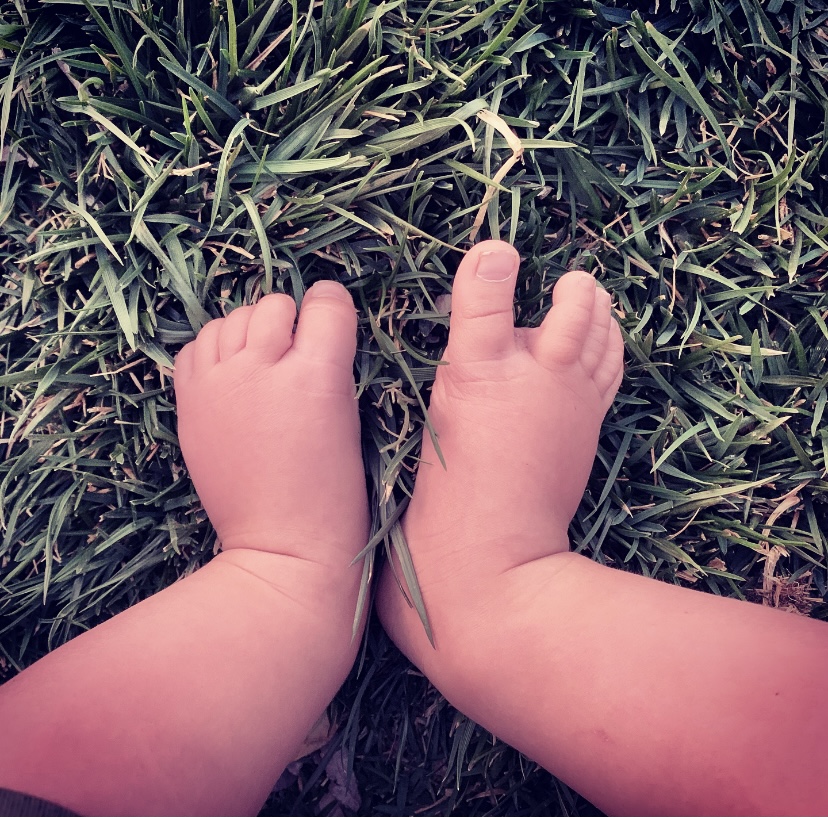
Mowgli was able to be pretty athletic considering he never had shoes on. There’s a reason for that! Being barefoot can actually improve balance, strength, and coordination. This also applies to toddlers learning to walk.
Kids also have an easier time safely climbing trees and rocks when they are barefoot because they have flexibility in their foot and are able to feel the texture beneath their feet, as opposed to a stiff shoe that may slip out from under them. Even running barefoot can help a child develop more foot and ankle strength, which can help prevent injury, and also helps them develop a natural running stride.
Being barefoot also allows your little one to connect with the earth and experience the health benefits of grounding (aka earthing.)
Of course, always size up the situation for dangers like broken glass, rusty nails, or hot pavement. But whenever possible, let them be barefoot!
6. Let the dog help raise them

If your child can’t be raised by wolves, then a dog is the next best thing. Probably better actually.
Studies have shown that babies raised around dogs have a more diverse microbiome than those without dogs. This helps strengthen their immune system and may prevent them from developing allergies and asthma later in life. Not only does the dog have its own unique bacteria, but dogs that run around outside or go on hikes with you may bring some of that friendly bacteria he picks up along the way home with him. They essentially bring the outdoors inside. That’s almost as good as raising your baby in the jungle with a pack of wolves!
Growing up with a dog also helps kids learn responsibility, kindness, and respect for animals.
So let the dog play with them, clean them, care for them, and protect them. The child will benefit from their long-term health, and the dog will benefit from their life-long friendship. =)
7. Encourage climbing
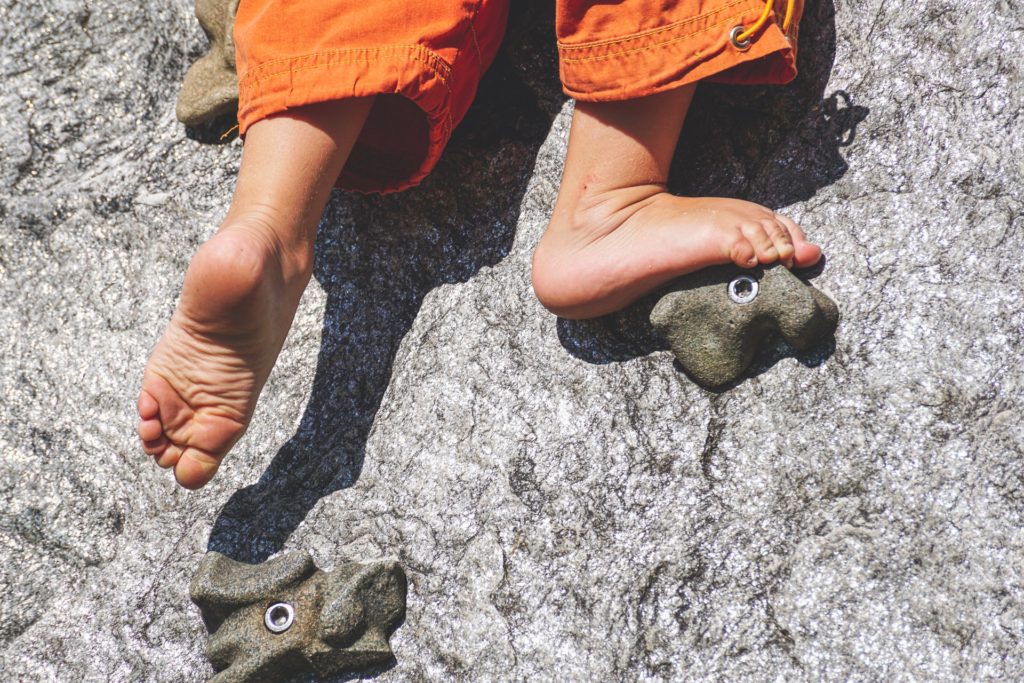
The day a baby wants to start climbing can be a nerve-wrecking one. But it is better for your child if you encourage climbing rather than fear it! Climbing helps a child develop gross-motor skills and can improve their balance, coordination, and athleticism.
Mowgli’s climbing skills made him nimble, flexible, confident, and even saved him from being devoured by a relentless tiger.
Instead of trying to constantly prevent them from climbing bookshelves and bar stools, create safe climbing spaces that allow them to safely develop their skills! A Pikler triangle is a great start for your little climber! This will also help build their confidence for when they start doing bigger climbing, like trees or boulders, which will improve their agility and make injuries less likely.
8. Be content with the bare necessities
Food, shelter, and safety were the bare necessities for Mowgli.
But honestly, our necessities aren’t much different. The more things we think we need in life, the more complicated it becomes. And the more we have, the more we want.
I read an observation somewhere (can’t remember where at the moment) that kids today are “more overstimulated and bored than ever.”
Try to simplify their environment by getting rid of unwanted toys and choosing toys that are simple and leave room for creativity. Help your kids live a slower-paced life by not over crowding their schedule, allowing plenty of time for unstructured play, and having quality family time.
Keeping our kid’s life simple by helping them find contentment with the “bare necessities” and learn to appreciate what they have will help create a peaceful, stress-free environment, lower anxiety, and lead to a happier life.
9. Find a like-minded pack
As stated in the poem “The Law of the Jungle” by Rudyard Kipling, “The strength of the pack is the wolf, and the strength of the wolf is the pack.”
Or as my dad always says, “If you wanna soar like an eagle, you gotta quit hangin around turkeys.”
Basically, part of your success in raising a jungle-lovin man cub depends on finding a like-minded pack. When you find other moms that share your values, get connected! Kids tend to follow the example around them, so if all their friends are staring at their phones or playing video games all day, chances are your kid will follow suit.
Get your kids connected with other kids that have the “Mowgli spirit” and want to play outside, hunt for bugs, climb trees, and get creative!
In conclusion…
No one really knows now Mowgli turned out. But I’m pretty confident that after he followed that cute little girl at the river, he turned out to be a pretty nice young man.
He had all the makings for being a confident, resilient, independent, innovative, and hard-working man.
He probably rarely got sick, and I doubt he ever developed pet allergies.
Sounds like the kind of kid any parent would be proud to raise! =)
So, yes, even if you live in an urban jungle, you can nurture the “Mowgli spirit” in your kid and (hopefully) raise a healthy, balanced child. Your kid will thank you later.
Any like-minded moms out there that have other tips for nurturing the Mowgli spirit? I would love to hear them!


